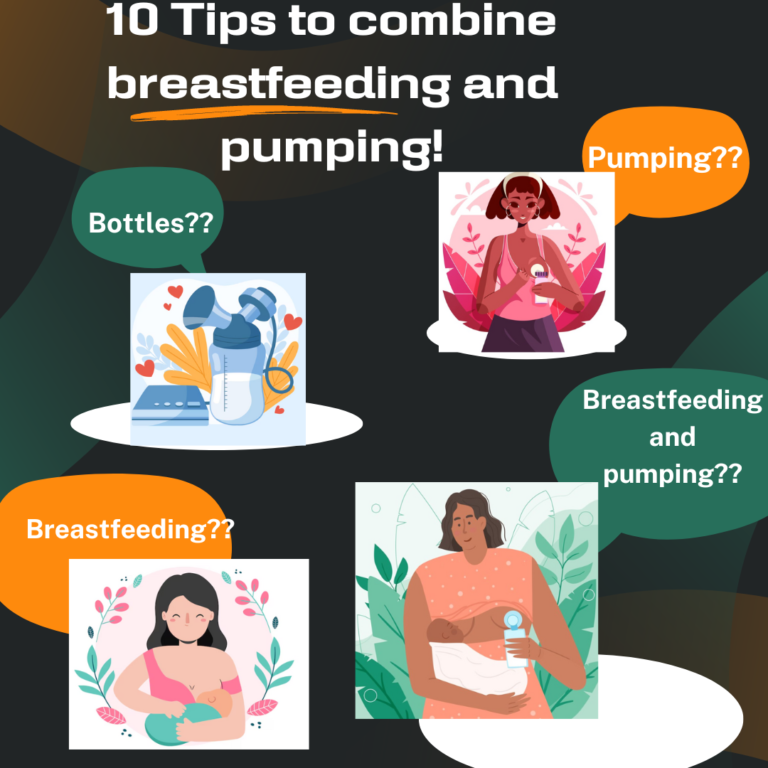Connection Between Gestational Diabetes and Breastfeeding : Your question answered?

Welcome to our comprehensive guide on gestational diabetes! Pregnancy is a beautiful and transformative journey, but it’s not without its challenges. One such challenge is gestational diabetes, a condition that can affect expectant mothers. In this blog, we’ll explore Connection Between Gestational Diabetes and Breastfeeding, its causes, prevention, and management. We’ll also address the impact on both the mother and the baby. Whether you’re an expectant mother or someone looking to understand this condition better, we’ve got you covered with answers to your most pressing questions.

What is Gestational Diabetes?
Gestational diabetes is a type of diabetes that develops during pregnancy. It occurs when the body cannot produce or use insulin effectively, leading to elevated blood sugar levels. This condition can affect both the mother and the developing baby.
What Causes Gestational Diabetes?
The exact cause of gestational diabetes is not fully understood, but it is thought to be related to hormonal changes during pregnancy. As the placenta produces hormones that can interfere with insulin function, some women may experience insulin resistance, resulting in elevated blood sugar levels.
What is the connection Between Gestational Diabetes and Breastfeeding?
Gestational diabetes, a condition that develops during pregnancy, can have implications for both the mother and the baby, not only during pregnancy but also after childbirth. Understanding the connection between gestational diabetes and breastfeeding is essential for expectant and new mothers. Here’s a comprehensive overview:
Impact on the Mother:
- Blood Sugar Control: Gestational diabetes often requires monitoring and management. After childbirth, maintaining stable blood sugar levels remains crucial, especially for mothers at risk of developing type 2 diabetes.
- Breastfeeding Support: Breastfeeding can aid in blood sugar control and postpartum weight loss for mothers with gestational diabetes. It’s essential to receive guidance and support for successful breastfeeding.
Impact on the Baby:
- Birth Weight: Babies of mothers with uncontrolled gestational diabetes may have a higher birth weight. Breastfeeding can contribute to healthier weight management for the infant.
- Long-Term Health: Babies born to mothers with gestational diabetes may have a higher risk of obesity and type 2 diabetes in the future. Breastfeeding can help mitigate these risks.
How to Prevent Gestational Diabetes?
While some risk factors like genetics and age cannot be changed, you can reduce your risk of gestational diabetes by:
- Maintaining a healthy weight before pregnancy.
- Staying physically active during pregnancy.
- Eating a balanced diet with controlled carbohydrate intake.
- Monitoring blood sugar levels as advised by your healthcare provider.
How Common is Gestational Diabetes?
Gestational diabetes is quite common, affecting about 6-9% of pregnancies. It can occur in women with no prior history of diabetes.
How to Avoid Gestational Diabetes?
Avoiding gestational diabetes involves practicing a healthy lifestyle before and during pregnancy. Maintain a balanced diet, engage in regular exercise, and monitor your blood sugar levels as recommended by your healthcare provider.
What Happens if You Have Gestational Diabetes?
If left untreated, gestational diabetes can lead to complications for both the mother and the baby. It may result in larger birth weight for the baby, potential birth injuries, and increased risk of type 2 diabetes for the mother.

How Does Gestational Diabetes Affect the Baby?
Gestational diabetes can affect the baby by causing macrosomia (large birth weight), respiratory distress syndrome, low blood sugar after birth, and an increased risk of obesity and type 2 diabetes later in life.
How Do You Get Gestational Diabetes?
Gestational diabetes is a type of diabetes that develops during pregnancy. It occurs when the body cannot produce enough insulin to meet the increased needs during pregnancy, resulting in elevated blood sugar levels. While the exact cause is not fully understood, several factors contribute to its development:
1. Hormonal Changes: During pregnancy, the placenta produces hormones that can interfere with the action of insulin, making the body more insulin-resistant.
2. Genetics: A family history of diabetes can increase the risk of gestational diabetes.
3. Obesity: Being overweight or obese before pregnancy raises the risk.
4. Age: Women over the age of 25 are at a higher risk.
5. Previous Gestational Diabetes: If you had gestational diabetes in a previous pregnancy, the risk is increased in subsequent pregnancies.
6. Polycystic Ovary Syndrome (PCOS): Women with PCOS are at a higher risk of developing gestational diabetes.
7. Ethnicity: Some ethnic groups, such as African American, Hispanic, and Native American women, have a higher risk.
Gestational diabetes typically develops around the 24th to 28th week of pregnancy. It’s essential for pregnant women to undergo screening for gestational diabetes, as proper management is crucial for the health of both the mother and the baby.

What to Eat with Gestational Diabetes?
A gestational diabetes diet typically includes balanced meals with controlled carbohydrate intake. You should focus on whole grains, lean proteins, healthy fats, and plenty of vegetables. Your healthcare provider or a registered dietitian can provide personalized dietary guidance. Understanding connection Between Gestational Diabetes and Breastfeeding is very important to provide the proper nutrition to the baby via breast milk.
Here’s a list of food items suitable for women with gestational diabetes:
Carbohydrates:
- Whole grains (brown rice, quinoa, whole wheat bread)
- Oats
- Barley
- Sweet potatoes
- Legumes (lentils, chickpeas, black beans)
- Non-starchy vegetables (broccoli, cauliflower, spinach)
Proteins:
7. Lean poultry (chicken, turkey)
- Lean meats (beef, pork)
- Fish (salmon, trout, sardines)
- Tofu
- Eggs
Dairy
12. Low-fat or fat-free yogurt
- Low-fat or fat-free milk
- Cheese in moderation
Fruits (in moderation):
15. Berries (strawberries, blueberries)
- Apples
- Citrus fruits (oranges, grapefruits)
- Cherries
- Kiwi
Healthy Fats:
20. Avocado
- Nuts (almonds, walnuts)
- Seeds (chia seeds, flaxseeds)
- Olive oil
Snacks (in moderation):
24. Greek yogurt
- Hummus with vegetable sticks
- Nut butter (with no added sugar)
Remember to monitor portion sizes and distribute meals and snacks evenly throughout the day to help stabilize blood sugar levels. A registered dietitian can provide personalized guidance to create a meal plan tailored to your specific needs.
How to Treat Gestational Diabetes?
Gestational diabetes is managed through dietary changes and, in some cases, medication or insulin therapy. Regular monitoring of blood sugar levels is essential to adjust treatment as needed.
While treatment plans may vary depending on individual circumstances, here is a general overview of how gestational diabetes is typically treated:
1. Dietary Modifications: A well-balanced diet is fundamental to managing gestational diabetes. Women are often advised to monitor their carbohydrate intake, focus on whole grains, lean proteins, and vegetables, and spread meals and snacks throughout the day to help stabilize blood sugar levels.
2. Regular Blood Sugar Monitoring: Pregnant women with gestational diabetes are frequently instructed to monitor their blood sugar levels using a glucose meter. This helps in tracking how different foods and activities affect blood sugar and allows for timely adjustments.
3. Physical Activity: Regular, moderate-intensity exercise can be beneficial for managing blood sugar. Consult with a healthcare provider to determine the most suitable exercise routine.
4. Insulin or Medications: In some cases, dietary and lifestyle modifications may not be enough to control blood sugar levels. Insulin therapy or other medications may be prescribed to help regulate glucose.
5. Fetal Monitoring: Pregnant women with gestational diabetes may undergo more frequent prenatal check-ups and fetal monitoring to ensure the baby’s well-being.
6. Delivery Timing: The timing and mode of delivery may be influenced by how well blood sugar levels are controlled and the overall health of the baby and mother.
7. Postpartum Monitoring: After childbirth, blood sugar levels are typically re-evaluated. Many women find that their blood sugar returns to normal after pregnancy, but there is a higher risk of developing type 2 diabetes in the future. Regular check-ups are essential.

What Happens if Gestational Diabetes is Not Controlled?
Uncontrolled gestational diabetes can lead to complications, including a higher risk of birth injuries for the baby, preeclampsia for the mother, and the development of type 2 diabetes for the mother after pregnancy.
How to Manage Gestational Diabetes?
Managing gestational diabetes involves following a treatment plan created by your healthcare provider. This typically includes monitoring blood sugar levels, eating a balanced diet, engaging in regular physical activity, and possibly taking medication or insulin as prescribed.
How is Gestational Diabetes Treated?
Gestational diabetes is typically treated with dietary modifications, regular blood sugar monitoring, and lifestyle changes. In some cases, medication or insulin may be prescribed if blood sugar levels cannot be controlled through diet and exercise alone.
When is Insulin Prescribed for Gestational Diabetes?
Insulin is often prescribed for gestational diabetes when dietary and lifestyle changes are not sufficient to control blood sugar levels, or when the condition is severe. Your healthcare provider will determine the appropriate treatment plan based on your specific needs.

What Can You Eat with Gestational Diabetes?
With gestational diabetes, you can eat a variety of foods, but it’s important to focus on balanced meals with controlled carbohydrate intake. Whole grains, lean proteins, healthy fats, and plenty of vegetables should be part of your diet. Monitoring blood sugar levels and working with a healthcare provider or dietitian can help tailor your food choices to your specific needs.
Conclusion
In summary, gestational diabetes, while common, can be effectively managed through a combination of dietary adjustments, monitoring, and medical support. By working closely with healthcare providers and following personalized plans, expectant mothers can ensure a healthy pregnancy and reduce potential risks to both themselves and their babies. Remember, you’re not alone in this journey, and with the right guidance, you can navigate gestational diabetes with confidence.










+ There are no comments
Add yours